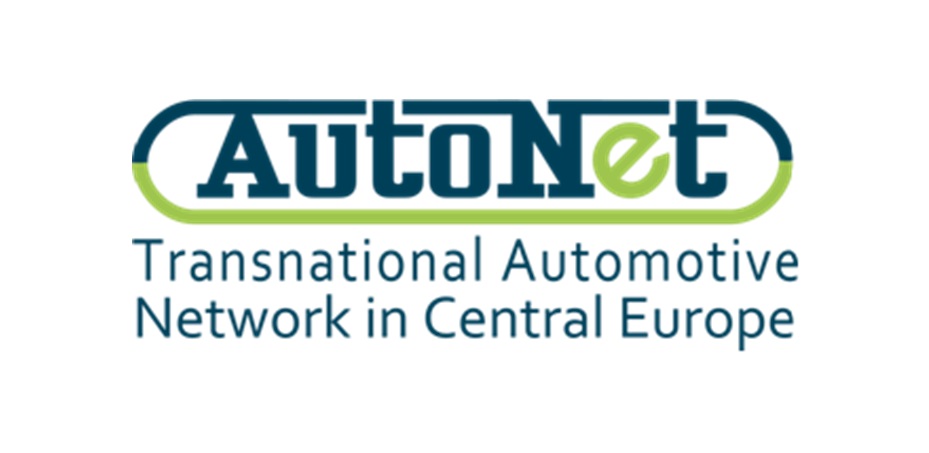- Search term must have more than 2 characters.
AutoNet

- Project name: Transnational Network of Leading Automotive Regions in CE
- Lead partner: Automotive Cluster West Slovakia (Slovakia)
- Partners: Comunimprese Scarl Consortile Company Limited by Guarantee (Italy), Business Interest Association ACS, Automotive Cluster of Slovenia (Slovenia), Mid-Pannon Regional Development Company (Hungary), Saxony Economic Development Corporation (Germany), Province of Reggio Emilia (Italy), Moravian-Selesian Automotive Cluster (Czech Republic), Podkarpatska Izba Gospodarcza (Poland), Lower Silesian Agency for Economic Cooperation (Poland)
- Duration: 03/2010 – 02/2013
- DEX Innovation Centre: The project author and the external management expert of the lead partner.
Project description:
AutoNet created a stable network of companies, research centres, universities, international organisations and public institutions, who could work together to promote innovation in the automotive industry. The project introduced key actors in the sector, allowing them to exchange knowledge and work with one another. AutoNet’s activities included the organisation of three international “Exchange of Experience Seminars”, held in Nitra (Slovakia), Reggio-Emilia (Italy), and Rzeszow (Poland). These meetings allowed for thematic discussions between 172 participants.
AutoNet also specialised in tools and meetings aimed at matchmaking, to help create long-term partnerships between European actors. The project’s MatchMaking database made it fast and easy to search for partners online. The database consisted of more than 470 registered organisations, and this number was continuously growing, thanks to new entries from small and medium-sized enterprises, research and development institutions, universities and other organisations involved in the automotive industry. The potential partners joining the database were not only from the European Union but also other countries with strong automotive industries, such as Ukraine, Turkey and Russia.
To help users get the most out of the MatchMaking database, AutoNet held:
27 special training sessions in 9 regions around Central Europe (more than 800 participants)
12 MatchMaking events – nine events in EU regions and one event each in Turkey, Ukraine and Russia (more than 550 participants)
6 agreements were signed to create long-term partnerships intended to develop innovative solutions.
In seeking to improve cooperation among actors in the auto industry, AutoNet also engaged in cooperation – for example by working on developing synergies with AUTOCLUSTERS. In addition, AutoNet signed agreements with CLEPA (European Association of Automotive Suppliers), which represents the official voice of the automotive supplier's industry, and EASN (European Automotive Strategy Network), which aims to strengthen the EU automotive industry by improving its competitiveness and long-term sustainability. As the initial project’s duration wound down, AutoNet was ensuring that its opportunities for networking were carried on, through the continuation of the MatchMaking database and other sustainable networking efforts.
Deliverables
1. Framework Policy Document
This document collects and assembly single and personal analysis conducted by each AutoNet partner. Each of them offered a personalized elaboration regarding automotive industry within their territory, mapping the excellence of the region, highlighting trends and developments.
2. Final Study
This study evaluates project implementation in the field of policies and cooperation with associated institutions with more deep insight about 3 selected policy areas:
Policies supporting increase of innovation capacities in automotive industry related fields in regions
Policies supporting sustainable development and increase the efficiency of supporting business actors
Policies increasing investment in innovations in automotive regions.
3. Common Service Standard
The AutoNet consortium established a Network of Automotive Clusters in the Central Europe. It determined the basic parameters and framework for the provision of services which are provided in the frame of AutoNet Network.
4. Ex-post Evaluation
This ex-post evaluation systematically collect and analyze the remarks and comments of all partners and their associated institutions in order to gather the feedback, review the proposals for improvements and to make judgments of the matchmaking activities throughout the project life.
Ex-post Evaluation
5. Matchmaking Activities (MM)
The methodology, as well as online MatchMaking portal, were developed in strong cooperation with DEXIC team.
6. Pilot
Pilots were, in fact, the transfers of Services (good practices) among the participating partners. Each Network member (partner) selected one good practice (existing service) from another partner and developed it with their support in the scope of the project.
